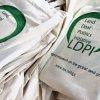Location
The Land Deal Politics Initiative (LDPI) is a network of the research programme of Political Economy of Resources, Environment and Population (PER) of the International Institute of Social Studies in The Hague, Part of Erasmus University Rotterdam.
The aim of LDPI is for a broad framework encompassing the political economy, political ecology and political sociology of land deals.
Our general framework is based on answering 6 key questions:
- Who owns what?
- Who does what?
- Who gets what?
- What do they do with their surplus wealth?
- Ho do social classes and groups in society and within the state interact with each other?
- How do changes in politics get shaped by dynamic ecologies and vice versa?
First steps will involve data-gathering through literature reviews, followed by research into more targeted national contexts. This will help us understand a broader set of 'so what' questions.
Members:
Resources
Displaying 21 - 25 of 27Climate-friendly agriculture and the clean development mechanism: an assessment of future prospects for agriculture and land use change in Latin America
Market solutions based on the trade of carbon offset credits remain a dominant feature in international climate change negotiations. This paper undertakes a preliminary assessment of potential of climate change mitigation projects by evaluating Clean Development Mechanism (CDM) projects related to agriculture and land use change in Latin America. Results suggest that potential benefits of carbon markets in the agriculture and forestry sectors are often overstated, with failures in the areas of additionality, project accountability and sustainable development.
What shall we do without our land? Land Grabs and Resistance in Rural Cambodia
Political dynamics of the global land grab are exemplified in Cambodia, where at least 27 forced evictions took place in 2009, affecting 23,000 people. Evictions of the rural poor are legitimized by the assumption that non-private land is idle, marginal, or degraded and available for capitalist exploitation. This paper: (1) questions the assumption that land is idle; (2) explores whether land grabs can be regulated through a ‘code of conduct’; and (3) examines peasant resistance to land grabs.
Commercial Biofuel Land Deals & Environment and Social Impact Assessments in Africa: Three case studies in Mozambique and Sierra Leone
Examines 3 case studies of proposed biofuel developments in Mozambique and Sierra Leone in terms of social displacement. More mitigation measures could provide livelihood restitution and avoid negative food security impacts.
‘Land belongs to the community’: Demystifying the ‘global land grab’ in Southern Sudan
A surprising number of large-scale land acquisitions have taken place in Southern Sudan in recent years. Presents preliminary data on Central and Western Equatoria, examining company-community engagement and the extent to which communities are being involved. Presents a number of case studies illustrating the complex interplay between cultural sovereignty and post-war reconstruction. Makes recommendations.
The role of foreign investment in Ethiopia’s smallholder-focused agricultural development strategy
Examines political and social dynamics of foreign agricultural investment in Ethiopia. Concludes that this expansion is part of a government move towards an export-led development strategy, so the micro-benefits come at the cost of increased risks to those living in the vicinity of new investments, particularly politically marginalised pastoralist populations.




